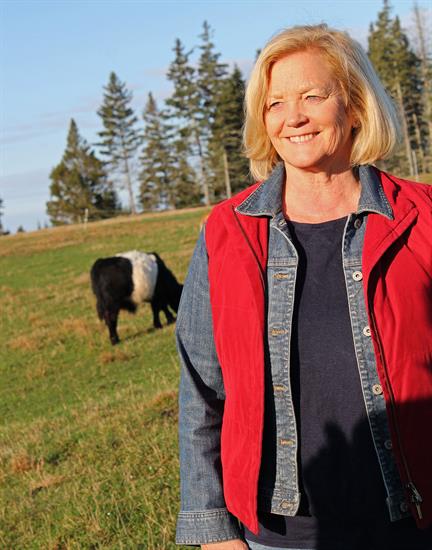Press Releases
Pingree Pushes Trump Admin to Extend 60-Day Public Comment Period of Controversial Proposed Mining Project
Washington,
September 21, 2020
Tags:
Energy and Environment
Congresswoman Chellie Pingree (D-Maine),Vice Chair of the House Interior-Environment Appropriations Subcommittee, today led five House members in pushing the U.S. Forest Service to extend the comment period for the Stibnite Gold Project’s Draft Environmental Impact Statement by 60 additional days. Full text of the lawmakers’ letter is available online here and at the bottom of this release. Midas Gold has proposed the Stibnite Mine, a large open pit, cyanide leach gold mine on approximately 1,500 acres of unpatented National Forest system lands in the Payette National Forest (PNF). This area resides at the headwaters of the East Fork of the South Fork of the Salmon River, providing habitat for three species listed as “threatened” under the Endangered Species Act (ESA): Snake River Steelhead trout, Chinook salmon and Bull Trout. The mine plan involves developing three open pits and permanently storing up to 100 million tons of toxic mining waste. “On Friday August 14, 2020, the PNF made the SGP DEIS available for public review. Though it took the Forest Service three years to prepare, the agency provided the public a mere 60-day comment period. Initial review of the document, which is over 5,000 pages, indicates a considerable amount of unavailable and incomplete information. Furthermore, the DEIS reveals significant impacts to Native American rights and interests, surface water and groundwater quality, and aquatic species and their habitat” said the lawmakers in their letter. The lawmakers continued: “The way the DEIS presents information makes it difficult for many affected persons to digest. Impacted communities expend substantial resources to thoroughly analyze the document and provide substantive comments to the Forest Service. These efforts help the public, particularly those individuals and families living nearest to the proposed mine, participate in and contribute to this process.” The letter also cited challenges with COVID-19, which has prevented in-person meetings in Idaho during the public comment period. The Forest Service has offered a virtual meeting room for commentators, but high-speed broadband access in Valley County, Idaho is not widespread. A longer comment period would provide more time to remedy these issues. Full text of Pingree’s letter is available online and below: Dear Chief Christensen: We write to respectfully request the United States Forest Service extend the comment period for the Stibnite Gold Project (SGP) Draft Environmental Impact Statement (DEIS) in central Idaho by 60 days. On Friday August 14, 2020, the Payette National Forest (PNF) made the SGP DEIS available for public review. Though it took the Forest Service three years to prepare, the agency provided the public a mere 60-day comment period. Initial review of the document, which is over 5,000 pages, indicates a considerable amount of unavailable and incomplete information. Furthermore, the DEIS reveals significant impacts to Native American rights and interests, surface water and groundwater quality, and aquatic species and their habitat, including Endangered Species Act (ESA) listed Snake River Chinook Salmon, Snake River Steelhead Trout, and Columbia River Basin Bull Trout. The way the DEIS presents information makes it difficult for many affected persons to digest. Impacted communities expend substantial resources to thoroughly analyze the document and provide substantive comments to the Forest Service. These efforts help the public, particularly those individuals and families living nearest to the proposed mine, participate in and contribute to this process. Their input aids the Forest Service in developing a more robust analysis of the SGP’s impacts, thus providing a better decision-making document and satisfying objectives under the National Environmental Policy Act (NEPA). COVID-19 has created additional challenges regarding public engagement. The current trajectory of the pandemic in Idaho, particularly in areas that will see the most direct impacts from the proposed SGP, requires precautions to protect public health. We appreciate the Forest Service offering a virtual meeting room for commenters. This virtual outreach is important, but high-speed broadband access in Valley County, Idaho is not widespread. Since the typical face to face town hall meetings and comment writing workshops are not possible, an extension of the comment period by 60 days would serve as a partial remedy and provide more time for communities to assist the Forest Service in reviewing, understanding, and commenting on the DEIS. We have great concerns that the NEPA review of the SGP in central Idaho is being conducted in a manner that limits, and in some cases excludes, the public’s meaningful and substantive participation. Meaningful public participation is a core tenant of NEPA. Even with the challenges presented by COVID-19, an extension of the public comment period by 60 days is reasonable and effective, while providing little burden to the project applicant. An extension may also help avoid a situation where an ongoing public health crisis, with disparate and disproportionate impacts, substantially impairs public participation in the SGP NEPA process. In addition, other controversial and complex hardrock mining projects have enjoyed longer public comment periods: the 2009 Rosemont Copper Mine DEIS (90-days)[1], the 2019 Pebble Mine DEIS (120-days)[2], and the 2019 Resolution Copper Project and Land Exchange DEIS (90-days)[3]. For the reasons above, we respectfully request the Forest Service extend the comment period for the Stibnite DEIS by 60 days. Thank you for your consideration. Sincerely, In January, Pingree joined by Congresswoman Betty McCollum (D-Minn.), Chair of the House Interior-Environment Appropriations Subcommittee, asked the Forest Service to revoke its decision allowing Midas Gold to write its own biological assessment to assess potential impacts to species listed under the Endangered Species Act. Their letter noted that the Forest Service’s decision raised serious concerns about potential conflicts between the public’s interest versus the corporation’s profit interest – as well as questions of scientific integrity. Read the January letter here.
###
|


